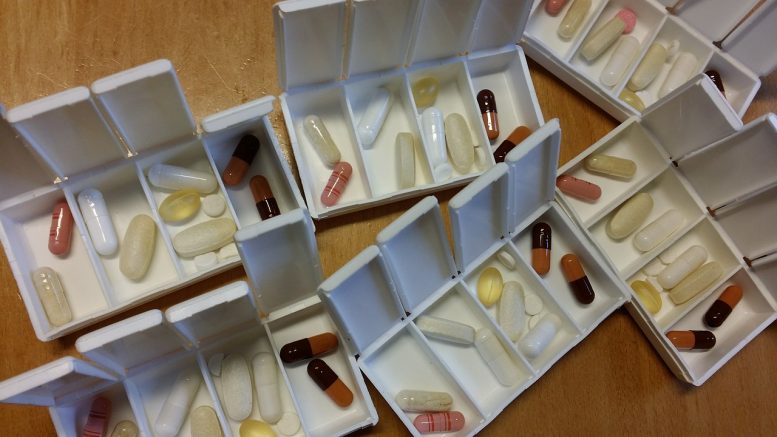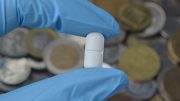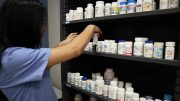New research suggests, that buying medications via mail could increase patients’ adherence to their prescribed medications regimen.
Researchers from Oakland Kaiser Permanente’s Division of Research and UCLA confirmed that patients with chronic illness like high cholesterol, diabetes or high blood pressure take their medications more strictly (as it was prescribed by a doctor) if those drugs were ordered by mail, not obtained from their local pharmacy.
The findings of the study appeared in the edition of the American Journal of Managed Care (only in the online edition)
The assistant professor and study’s lead researcher (division of general internal medicine and health services research, David Geffen School of Medicine at UCLA) Dr. O. Kenrik Duru said, “The field of medication adherence research typically focuses on patient factors for poor adherence, leading to a ‘blame the patient’ approach for non-adherence, “Our work helps to place this issue in a larger perspective,” Duru said. “Our findings indicate that mail-order pharmacies streamline the medication-obtaining process, which is the part of the medication adherence.”
Some details on research
The researchers analyzed medications refill data for almost 14,000 Kaiser Permanente members in Northern California from 2006 and 2007 years during the one-year study period. They concluded, that for a high rate of adherence, the patient medication should be available all the time and should be on-hand at least 80% of the time.
Due to the research, 84.7% of patients, who got their medications via mail at least 67% of all the time stuck to the regimen, which was prescribed by their physician. That 79.9 % of patients, who picked up their medications at common Kaiser Permanente pharmacies, didn’t stick to the regimen.
“For all the three classes of medication (medications to control high blood pressure, cholesterol, and diabetes) the results were consistent,” said Julie A. Schmittdiel, Ph.D., a search scientist with Kaiser research division, who was also a co-investigator.
There are also several things were found during the research:
- Before gathering the information for other variables, Hispanic patients were less likely than white patients to get medications by mail (31.1% vs 61%); white patients were in highest social and economic status quartile (27.5% vs. 17.8%).
- Unlike local pharmacy users, mail-order pharmacy users have a financial stimulus to get a refill of their prescribed medications (49.6% vs 23%) and live further from a local pharmacy (8.0 miles vs 6.7 miles). One of the greatest financial incentive examples is receiving a three-month supply. Note, that in the brick-and-mortar pharmacy patients were able to get only a two-month supply for the same price.
- After gathering the information for other variables, whites used mail-order pharmacies the most (24.1%), then were Pacific islanders and Asians (8.4%), 5.2% of Hispanics were likely to use the mail-order pharmacies, African Americans (4%) and individuals of mixed race – 8.0%.
Most of other researchers studied the connection between the prescribed drugs costs and mail-order/traditional pharmacies, Kaiser research is the first to find out the association between medication devotion and pharmacy type. On the top of that, this research controls for the difference in out-of-pocket costs, medications prices and medications supplies between local pharmacy customers and mail-order pharmacy users, and that’s something other researchers missed or simply didn’t include in their collected data.
Duru said their study was able to isolate the results of the use of mail-order pharmacies, so there wasn’t any effect on different costs of medications or the number of pills provided to the customer.
Unfortunately, the study has some limitations, so some findings should be re-confirmed by a randomized controlled group or trial. But, in any case, the research proved the increase of mail-order pharmacies to get prescribed medications, will cause the higher rate of patients’ adherence.
National Institute of Diabetes and Digestive and Kidney Diseases and U.S. Centers for Disease Control and Prevention sponsored this study.
The research team is growing now. To help Schmittdiel and Duru other researchers were assigned by Kaiser Permanente Northern California research division. Their names are Andrew J. Karter, James Chan, Melissa Parker, Wendy Dyer and Connie Uratsu.
Work is still going on
For improvement of Kaiser Permanente members and society, the Division of Research manages, publishes and spread epidemiologic and health services research. In this moment, the division of more than 500 people is working on more than 250 health services and epidemiological researchers. They are trying to find the determinants of health or illness, improve the quality and cost-efficiency of health care services.
At the David Geffen School of Medicine at UCLA, the General Internal Medicine and Health Services Research Division provides health services researchers, medical and pharmacy experts with special, developed interactive environment, so they can collaborate and share their evidence-based work with each other.
There are about 100 research and clinic specialists working on a wide variety of different projects that are supposed to examine the issues related to health care, its quality, physical and medical education, doctor ethics and communications with patients. This division collaborates and shares its knowledge with other UCLA specialists (social scientists, economists etc) and sometimes they work with their counterparts from other facilities like Charles Drew University of Medicine and Science or RAND corporation.





Be the first to comment on "Mail-Order Pharmacies Will Improve Patients’ Medical Adherence"